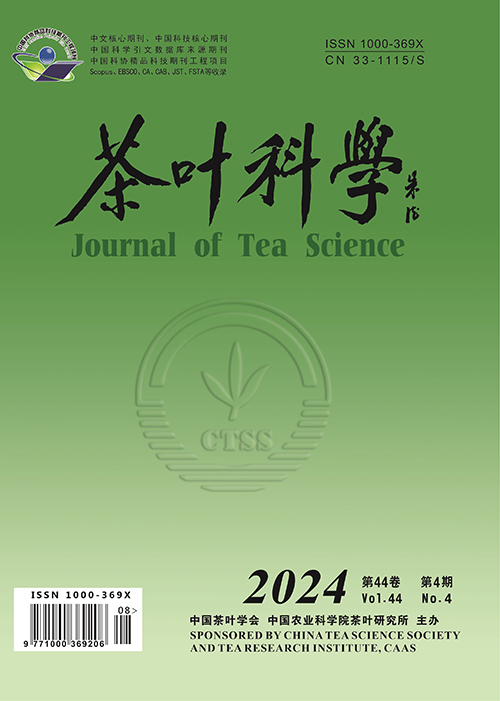Attempting to Understand Health Effects Associated with Tea Consumption by Investigating Complexation Reactions with Copper
引用次数: 0
Abstract
Tea consumption is associated with many health benefits including protection against neurodegenerative disorders, heart disease and viral infections, and stimulation of brain activity, it has also been reported to help diabetes prevention, and has been linked with anticancer properties. This presentation addresses the chemical components in teas that might be responsible for the reported health effects. Although many beneficial effects of tea consumption are associated with the high polyphenol contents of the beverages, the chemical forms of the specific polyphenols differ greatly among tea types, primarily as a consequence of their processing conditions. Furthermore, the wide ranges of beneficial health effects associated with tea consumption, makes it unlikely that all are derived from a single family of chemicals. Therefore, special consideration is given to the search for non-phenolic components in teas with potential biological activities.通过研究茶与铜的络合反应,试图了解茶对健康的影响
喝茶对健康有很多好处,包括预防神经退行性疾病、心脏病和病毒感染,以及刺激大脑活动,据报道,它还有助于预防糖尿病,并与抗癌特性有关。本演讲将介绍茶叶中的化学成分,这些化学成分可能对所报道的健康影响负责。虽然饮茶的许多有益作用与饮料中的高多酚含量有关,但不同茶叶类型中特定多酚的化学形式差异很大,这主要是加工条件的结果。此外,饮茶对健康的广泛有益影响,不太可能都来自于单一的化学物质家族。因此,特别考虑在茶叶中寻找具有潜在生物活性的非酚类成分。
本文章由计算机程序翻译,如有差异,请以英文原文为准。
求助全文
约1分钟内获得全文
求助全文
来源期刊
CiteScore
1.50
自引率
0.00%
发文量
2558
期刊介绍:
The Journal of Tea Science was established in August 1964, approved by the Publicity Department, CCCPC. Its title was inscribed by Zhu De, the chairman of CCCPC. It was discontinued during the Cultural Revolution in 1966, and it was reissued in August 1984, approved by the State Scientific and Technological Commission.Academicians Chen Zongmao and Liu Zhonghuaof the Chinese Academy of Engineering served as the directors of the editorial board. The Journal of Tea Science is managed by the China Association for Science and Technology,sponsored by the China Tea Science Society and the Tea Research Institute of the Chinese Academy of Agricultural Sciences, and edited and published by the editorial office of the Journal of Tea Science. It is the only one of Chinese core journals in the field of tea science that is included in the core library of the Chinese Science Citation Database.Its Domestic Unified Serial Number is CN 33-1115/S, its International Standard Serial Number is ISSN 1000-369X and its International publication name code is CODEN-CHKEF4. At present, the Journal of Tea Science is a bimonthly publication, published in the middle of the month, with a book size of 16.

 求助内容:
求助内容: 应助结果提醒方式:
应助结果提醒方式:


